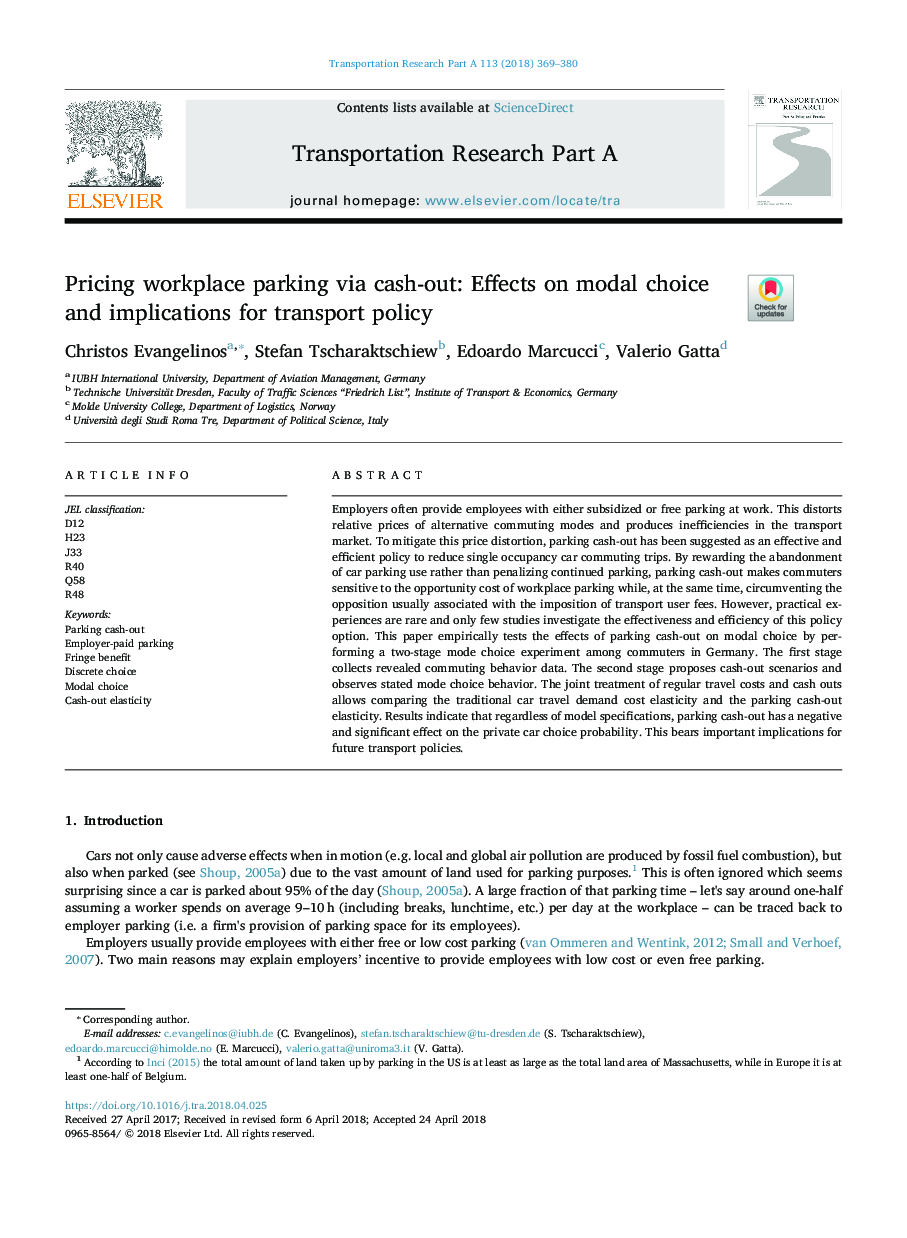| Article ID | Journal | Published Year | Pages | File Type |
|---|---|---|---|---|
| 6780163 | Transportation Research Part A: Policy and Practice | 2018 | 12 Pages |
Abstract
Employers often provide employees with either subsidized or free parking at work. This distorts relative prices of alternative commuting modes and produces inefficiencies in the transport market. To mitigate this price distortion, parking cash-out has been suggested as an effective and efficient policy to reduce single occupancy car commuting trips. By rewarding the abandonment of car parking use rather than penalizing continued parking, parking cash-out makes commuters sensitive to the opportunity cost of workplace parking while, at the same time, circumventing the opposition usually associated with the imposition of transport user fees. However, practical experiences are rare and only few studies investigate the effectiveness and efficiency of this policy option. This paper empirically tests the effects of parking cash-out on modal choice by performing a two-stage mode choice experiment among commuters in Germany. The first stage collects revealed commuting behavior data. The second stage proposes cash-out scenarios and observes stated mode choice behavior. The joint treatment of regular travel costs and cash outs allows comparing the traditional car travel demand cost elasticity and the parking cash-out elasticity. Results indicate that regardless of model specifications, parking cash-out has a negative and significant effect on the private car choice probability. This bears important implications for future transport policies.
Related Topics
Physical Sciences and Engineering
Engineering
Civil and Structural Engineering
Authors
Christos Evangelinos, Stefan Tscharaktschiew, Edoardo Marcucci, Valerio Gatta,
